- A general introduction on Angiology/Vascular Medicine is reported in Vascular Medicine as Speciality.
- This is a new, dynamic space for news, information that the different National Societies would consider sharing and up-date.
Short summaries on how the Specialty is organized by the Countries where it has been recognised, and of the steps done by countries where the Specialty has not been already officialised. - Development and strengthening of the Specialty at European level and worldwide, improving prevention and care, represents one of the main goals of VAS.
How has VAS been concretely contributing to the Specialty recognition at European level and worldwide, during the years?
- Proposing a European perspective that has supported national efforts since 1991.*
- Giving new European terminology: defining Angiology as a medical area (deleting the distinction between Angiology and Medical Angiology), unifying Angiology/Vascular Medicine as synonymous. Giving the first European definition of the Specialty in 1999, then accepted by UEMS.
- Obtaining the creation of the UEMS Division of Angiology/VM , the creation of the EBEAVM;European Board for the European Exam in A/VM (CESMA-UEMS)
- Developing qualified European Education programs, continuously up-dated, integrating education and training, with the European Training Requirements
- Being the Organization promoting the signed MoU between EU and USA for a eligibility reciprocity of the UEMS Diploma and of the ABVM Certification
- Creating and supporting collaborative actions, to enlarge the awareness on its social need
- Working inside of WHO and at EU level, also improving advocacy
What is the body, that VAS considers should lead towards, obtaining the inclusion of A/VM Specialty in the EU Directives ?
- The efforts to have the Specialty recognised, should be a role of the UEMS Division (an independent body, with representatives of the national NMEA , being expert in the area), connected to the UEMS Central Officer for European & international affairs
- His process is largely supported by VAS
- It is the right time for a new action
Countries with a recognized Specialty or Sub-Specialty in Angiology/Vascular Medicine (Alphabetic order-May 2025):
Austria, Bulgaria, Czech Republic, France, Germany, Hungary, Netherlands, Poland, Slovakia, Slovenia, Sweeden, Switzerland (Non EU Country).
European Directives
Directive – 2001/19 – EN – EUR-Lex Requested 2/5 of the European Union Members,
Send your information to: vas@vascularmedicine.net and in cc to: vas@unimi.it
News from the National Societies
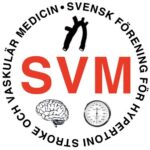
Swedish certification in Vascular Medicine
The Swedish Society of Medicine has approved Vascular Medicine as a certified sub-speciality for specialists in Cardiology or Internal Medicine. The certification requires 2.5 years of additional clinical rotation and training in the field, in addition to the base-speciality’s 5.5 years. The training requirements and educational program is based on the non-interventional parts of the current VAS/European UEMS Training Requirements for Angiology/Vascular Medicine.
Jonas Spaak, president, Swedish society for hypertension, stroke and vascular medicine.
April 2025

The position of the Angiology speciality in Hungary
Following the introduction of the internal medicine angiology licence (representing lower respect) several years ago, which was achievable following an internal medicine qualification, the internal medicine angiology qualification was introduced in Hungary in 2015. Initially, it was defined as an additional qualification to be built on the internal medicine specialist examination, but from 2023, it became a primary specialist examination in internal medicine angiology.
The 54-month course starts with 24 months of basic training, mostly overlapping with internal medicine qualification, and it is followed by 30 months of specialised vascular medicine training. The latter includes vascular ultrasound, vascular surgery, interventional radiology, vascular imaging, dermatology and immunology training. All medical universities in Hungary are accredited for this training. Bodies for education were formed in these institutes. Internal medicine and cardiology trainees are supported by accepting more months from their former education for angiology qualification training.
Unfortunately, the workforce in this field shows high spatial disparity (specialist accessibility is not available in several counties). This represents the main challenge to education organisers.
Endre Kolossvary-President of MAET
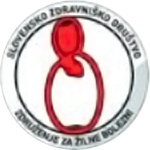
The Specialty of A/VM in Slovenia
In Slovenia, we do not have a specialty in A/VM as a separate specialty. Our specialty is Cardiology and Vascular Medicine. It takes two years of a common trunk of Internal Medicine and then four years of specialty Cardiology and Vascular Medicine. Vascular Medicine in our country is not just an appendage to cardiology, but it has its own curriculum, which is included in the speciality, and all candidates must to pass the education in the field of A/VM, which includes clinical knowledge, prevention, treatment and also some instrumental skills ( Doppler measurements, active ultrasound, and interpretation of other specific investigation methods). The candidates, when they finish their education and pass the exam, are specialists in cardiology and vascular medicine
Matija Kozak- President Slovenian Society for Vascular Diseases
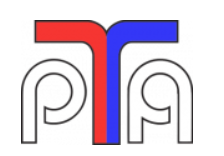
Specialty in Poland
Angiology was officially recognized as a medical specialty in Poland in 1999. One can become aspecialist in angiology after completing a 5-year modular training program (3 years of internalmedicine followed by 2 years of angiology), or within 2 years if the candidate already holds specialization in internal medicine or vascular surgery.
Agata Stanek, President of Polish Society of Angiology

Specialty in Slovakia
The ultimate goal of training is to provide the best quality for care, in accordance with the principles of equity for patients, citizens and for the specialists in the right to education in accordance with UEMS Training Requirements for Angiology/Vascular Medicine: European Standards of Postgraduate Medical Specialist Training (2022 Updated Version)
Organisation of training in Slovakia
Composition and duration of training
The Core Curriculum recommends 5 certified years of training:Training consists of:
– At least 2 years Common Medical Trunk training in Internal Medicine
– 3 years training in Angiology/Vascular medicine (A/VM)
o training in accredited angiology/vascular medicine centre – 9 months (optimally 3 months per year)
o training in angiology/vascular medicine outpatient clinic supervised by specialist in A/VM – 12 months (optimally 4 months per year)
o training at angiology department or at internal medicine department with experiences in A/VM supervised by specialist in A/VM – 15 months (optimally 5 months per year)
The Core Curriculum foresees the training on all the aspects of competence in Angiology/Vascular Medicine and defines the minimum requirements for the main skills
Denisa Čelovská- President of Slovak Society of Angiology
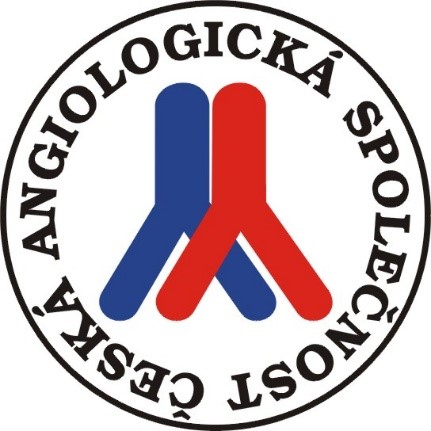
Specialty in Czech Republic
Angiology has been recognized in the Czech Republic as an independent internist specialty since 2004. In 2016, an amendment to the postgraduate education system was made, which classified angiology in the Czech Republic as a sub-specialization that can be obtained after previous completed education in internal medicine, cardiology or endocrinology. The total length of education for obtaining a specialization in angiology has thus been extended from the original 5 years to 6.5 years, while the angiology program itself is at least 18 months. The Accreditation Commission of the Ministry of Health of the Czech Republic for the angiology approves the content of the training program that takes place at accredited angiology centers or clinics. The education is completed by an examination, the content of which is also determined by the Accreditation Commission of the Ministry of Health. Since the introduction of angiology expertise, more than 220 trainees have passed the exams, so there are currently approximately 2 certified angiologists per 100,000 inhabitants in the Czech Republic.
Karel Roztocil President of the Czech Angiological Society
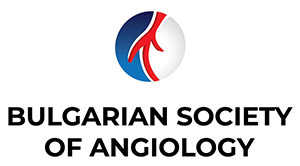
Specialty of Angiology in Bulgaria
The specialty of Angiology has been recognized as an independent clinical specialty, that you can acquire after graduating from medicine in Bulgaria since January 2007. The training is 4 years and is conducted in accredited clinics. The program includes training 13 months in internal medicine, 5 months in vascular surgery, 1 month in neurology, 29 months in angiology (general angiology – 5 months, phlebology – 5 months, lymphology – 2 months, endovascular angiology – 5 months, endovascular phlebology – 5 months). Doctors graduate with a unified state exam. The training program is coordinated with the Rectors of the Medical Universities and approved by the Minister of Health. There is an additional training for acquiring qualifications in Ultrasound Vascular Diagnostics, Endovascular Angiology and Endovascular Phlebology. Currently, there is an uneven distribution of angiologists. They are mainly in the city of Sofia.
Milena Staneva, Vice President of the Bulgarian Society of Angiology
